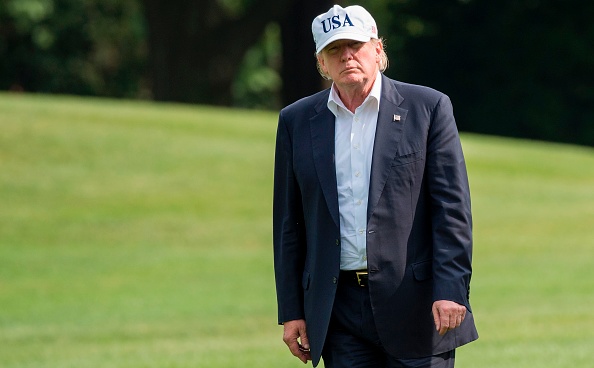Emails reveal Trump associate promised Putin support on potential Moscow tower


A free daily email with the biggest news stories of the day – and the best features from TheWeek.com
You are now subscribed
Your newsletter sign-up was successful
The New York Times revealed Monday that during the presidential campaign, a business associate of President Trump's pushed a potential real estate deal with Russian President Vladimir Putin, asserting a Trump Tower in Moscow would "get Donald elected."
The Times acquired a series of emails between Felix Sater and Trump's lawyer, Michael Cohen, stemming from 2015. Sater told Cohen that he could win Putin's support for a Trump Tower in Moscow, which Sater said would boost then-candidate Trump's political prospects. "Our boy can become president of the U.S.A. and we can engineer it," Sater wrote to Cohen. "I will get all of Putin's team to buy in on this."
The Washington Post had revealed the existence of the messages between Sater and Cohen on Sunday, but did not reveal their contents. Additionally, it remains unclear how aware or involved Trump was. The Trump Organization and investors signed a letter of intent, but the project stalled and was dropped at the end of January 2016.
The Week
Escape your echo chamber. Get the facts behind the news, plus analysis from multiple perspectives.

Sign up for The Week's Free Newsletters
From our morning news briefing to a weekly Good News Newsletter, get the best of The Week delivered directly to your inbox.
From our morning news briefing to a weekly Good News Newsletter, get the best of The Week delivered directly to your inbox.
Cohen told the Times in a statement that he considered Sater's boasts of influence with Putin to be simple "salesmanship." "I ultimately determined that the proposal was not feasible and never agreed to make a trip to Russia," Cohen said. In a statement Monday, the Trump Organization said: "To be clear, the Trump Organization has never had any real estate holdings or interests in Russia."
Read more at The New York Times.
A free daily email with the biggest news stories of the day – and the best features from TheWeek.com
Kimberly Alters is the news editor at TheWeek.com. She is a graduate of the Medill School of Journalism at Northwestern University.
-
 How the FCC’s ‘equal time’ rule works
How the FCC’s ‘equal time’ rule worksIn the Spotlight The law is at the heart of the Colbert-CBS conflict
-
 What is the endgame in the DHS shutdown?
What is the endgame in the DHS shutdown?Today’s Big Question Democrats want to rein in ICE’s immigration crackdown
-
 ‘Poor time management isn’t just an inconvenience’
‘Poor time management isn’t just an inconvenience’Instant Opinion Opinion, comment and editorials of the day
-
 TikTok secures deal to remain in US
TikTok secures deal to remain in USSpeed Read ByteDance will form a US version of the popular video-sharing platform
-
 Unemployment rate ticks up amid fall job losses
Unemployment rate ticks up amid fall job lossesSpeed Read Data released by the Commerce Department indicates ‘one of the weakest American labor markets in years’
-
 US mints final penny after 232-year run
US mints final penny after 232-year runSpeed Read Production of the one-cent coin has ended
-
 Warner Bros. explores sale amid Paramount bids
Warner Bros. explores sale amid Paramount bidsSpeed Read The media giant, home to HBO and DC Studios, has received interest from multiple buying parties
-
 Gold tops $4K per ounce, signaling financial unease
Gold tops $4K per ounce, signaling financial uneaseSpeed Read Investors are worried about President Donald Trump’s trade war
-
 Electronic Arts to go private in record $55B deal
Electronic Arts to go private in record $55B dealspeed read The video game giant is behind ‘The Sims’ and ‘Madden NFL’
-
 New York court tosses Trump's $500M fraud fine
New York court tosses Trump's $500M fraud fineSpeed Read A divided appeals court threw out a hefty penalty against President Trump for fraudulently inflating his wealth
-
 Trump said to seek government stake in Intel
Trump said to seek government stake in IntelSpeed Read The president and Intel CEO Lip-Bu Tan reportedly discussed the proposal at a recent meeting
